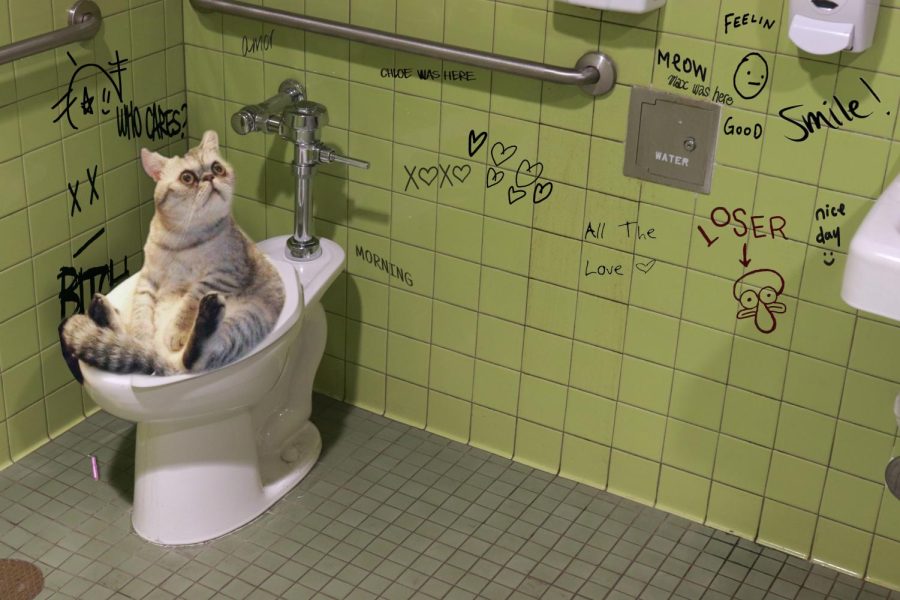Why You Mustn't Flush Cat Poop Down Your Toilet - Preserve Your Pipe System
Why You Mustn't Flush Cat Poop Down Your Toilet - Preserve Your Pipe System
Blog Article
Presented here down the page you can get more wonderful advice pertaining to How to Dispose of Cat Poop and Litter Without Plastic Bags.

Introduction
As cat owners, it's essential to be mindful of how we get rid of our feline pals' waste. While it may appear practical to purge feline poop down the toilet, this practice can have destructive effects for both the atmosphere and human health.
Alternatives to Flushing
Fortunately, there are more secure and much more responsible means to take care of feline poop. Think about the following alternatives:
1. Scoop and Dispose in Trash
One of the most usual approach of taking care of pet cat poop is to scoop it right into a biodegradable bag and throw it in the garbage. Be sure to make use of a committed litter inside story and deal with the waste without delay.
2. Usage Biodegradable Litter
Choose eco-friendly pet cat litter made from materials such as corn or wheat. These trashes are eco-friendly and can be safely gotten rid of in the garbage.
3. Hide in the Yard
If you have a backyard, think about hiding feline waste in a marked location far from veggie yards and water resources. Make sure to dig deep sufficient to avoid contamination of groundwater.
4. Set Up a Pet Waste Disposal System
Purchase a pet dog garbage disposal system especially created for feline waste. These systems utilize enzymes to break down the waste, decreasing odor and ecological effect.
Health and wellness Risks
In addition to ecological worries, flushing cat waste can additionally present health and wellness risks to humans. Pet cat feces may contain Toxoplasma gondii, a parasite that can create toxoplasmosis-- a possibly severe ailment, specifically for expecting females and individuals with damaged immune systems.
Ecological Impact
Flushing pet cat poop introduces unsafe microorganisms and bloodsuckers into the water supply, presenting a significant danger to marine communities. These impurities can negatively affect aquatic life and concession water quality.
Final thought
Accountable pet dog ownership prolongs beyond providing food and sanctuary-- it likewise includes proper waste administration. By refraining from flushing pet cat poop down the toilet and selecting different disposal techniques, we can lessen our environmental footprint and safeguard human health.
Why You Should Never Flush Cat Poop Down the Toilet
A rose by any other name might smell as sweet, but not all poop is created equal. Toilets, and our sewage systems, are designed for human excrement, not animal waste. It might seem like it couldn’t hurt to toss cat feces into the loo, but it’s not a good idea to flush cat poop in the toilet.
First and foremost, assuming your cat uses a litter box, any waste is going to have litter on it. And even the smallest amount of litter can wreak havoc on plumbing.
Over time, small amounts build up, filling up your septic system. Most litter sold today is clumping; it is made from a type of clay that hardens when it gets wet. Ever tried to scrape old clumps from the bottom of a litter box? You know just how cement-hard it can get!
Now imagine just a small clump of that stuck in your pipes. A simple de-clogger like Drano isn’t going to cut it. And that means it’s going to cost you big time to fix it.
Parasitic Contamination
Believe it or not, your healthy kitty may be harboring a nasty parasite. Only cats excrete Toxoplasma in their feces. Yet it rarely causes serious health issues in the cats that are infected. Most people will be fine too if infected. Only pregnant women and people with compromised immune systems are at risk. (If you’ve ever heard how women who are expecting are excused from litter cleaning duty, Toxoplasma is why.)
But other animals may have a problem if infected with the parasite. And human water treatment systems aren’t designed to handle it. As a result, the systems don’t remove the parasite before discharging wastewater into local waterways. Fish, shellfish, and other marine life — otters in particular — are susceptible to toxoplasma. If exposed, most will end up with brain damage and many will die.
Depending on the species of fish, they may end up on someone’s fish hook and, ultimately on someone’s dinner plate. If that someone has a chronic illness, they’re at risk.
Skip the Toilet Training
We know there are folks out there who like to toilet train their cats. And we give them props, it takes a lot of work. But thanks to the toxoplasma, it’s not a good idea.

As an enthusiastic person who reads about Don’t flush cat feces down the toilet, I assumed sharing that piece of content was a smart idea. Sharing is caring. Helping others is fun. Many thanks for going through it.
Book An Appointment Report this page